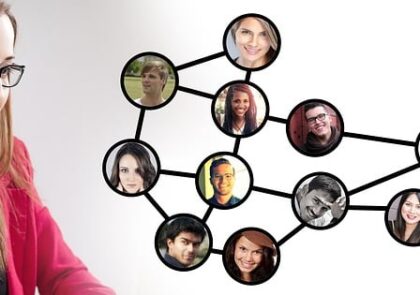
Global citizenship and diversity management are the core issues of the new distant course introduced to the LAB University of Applied Sciences in autumn 2022. The prior research showed that there is no agreed understanding of issues to be included into the course curriculum. There is also a gap in knowledge of students’ competencies related to the topic. So, the course creators conducted a short survey at the initial stage of the course. The current article aims at analysing the main findings of the survey, discusses the relevance of the study material, and concludes that the chosen material and the range of themes answer the needs of the course participants offering them a wide range of theoretical and practical tasks.
Author: Mariia Baliasina
Global citizenship has been included in the national educational guidelines of Finland for about 50 years by now (Räsänen 2002, 107). As a partner of an Erasmus+ funded international GLOBDIVES project (Global Citizenship and Diversity Management Skills in Higher Education), the team of the LAB University of Applied Sciences has launched a pilot course on Global Citizenship and Diversity Management (further on – the course) for the Sustainable Solutions in Engineering international degree programme. The project acts on a research basis, so a literature review and a set of theme interviews confirmed the relevance of the study content. The interviews took place in Finland, Lithuania, Germany, Spain, and Romania. Representatives from educational institutions, companies and non-governmental organisations stated their opinions and experiences on global citizenship and diversity management. The interviews acknowledged the need to deepen awareness of global citizenship and diversity management and to strengthen the teaching of both issues in higher education institutions. At the beginning of the pilot course, the LAB team decided to get additional information and conduct a short survey among students participating in the course.
The starting point for the survey is the fact that up to the present, there has been no agreed definition of global citizenship but diverse interpretations of the term. So, the survey aimed to check the understanding of global citizenship among students and to see whether the offered material answers their competencies. The survey took place before the actual lecturing started and was conducted as a short audio/video answer to the question To your opinion, what is global citizenship? Who is a global citizen? The project team transliterated the answers and analysed them paying attention to the themes that the students included in the notion of global citizenship. There are several points in the responses that are worth paying attention to.
No single general understanding of global citizenship
The survey got 17 answers. The first main observation made upon their analyses is that there is no single general view on global citizenship among the respondents. To some extent, this fact corresponds to the current situation. It also allows us to conclude that every course participant will find new and beneficial material which could broaden their competencies.
The main point shared by 71 % of the respondents is that global citizenship implies belonging to a global community or a globalized world. However, this point does not get support from a homogeneous group of answers. For example, some state the idea of being globally united, e.g., “we are all united in a way”; others underline feelings, e.g., “feels at home in any country of the world”. 58% of those who mentioned global citizenship oppose it to belonging to one country or nation, e.g., “everyone is not a citizen of a specific country with their nationality and culture, but everyone is also a citizen of the world” or “awareness of not belonging to only a one place but to earth”. Such an understanding needs correction. Global citizenship does imply belonging to the global community, but it does not separate global from national, local, or individual. It embraces all of them. Every person is supposed to have a cultural identity. Realising that cultural heritage is a part of the global community, a global citizen is supposed to bring their own culture, identity, or nationality to global unity. The course lecture on global citizenship opens up this common misconception.
Approximation of responsibilities of a global citizen
The following notions were mentioned in 4 to 6 answers (24–35% respectively) of the survey: no discrimination or prejudice of any kind, globality in thinking or decision-making, understanding of the world and its problems, awareness of responsibilities, and intercultural awareness. These answers partially correlate with the eight responsibilities of a global citizen formulated by Ron Israel (2015). Understanding these notions from the beginning of the course will help students accomplish the tasks and will lead to a deeper understanding of the material. Nevertheless, 24 %, or even 35%, is not a sufficient indicator to conclude that the topic is well-known or mastered by the students. Such things as international cooperation, implementation of international agreements, and advocating for more effective global equity and justice were not mentioned.
The reference to the responsibilities to build relationships with people of other cultures and to understand how people and countries of the world are interconnected (Israel 2015) appear in three answers (18%) that mentioned broadening community and striving to get to know other people.
According to 35% of the respondents, intercultural awareness embraces respect for other cultures, inclusion, and diversity. The course discloses all these notions and explains the differences in the usage of the terms. Globality in thinking and decision-making is notable as critical thinking supports questioning the world around you and celebrates diversity in everything, including opinions and experiences. The critical perspective seems to be the most reliable one in the course.
The active role of an individual is included in many definitions of global citizenship, for example, the ones by UNESCO (2014, 14) and Oxfam (Oxfam 2022). Not all students mention acting as a part of being a global citizen. Altogether there are five responses (29%) that connect to acting or action and include, e.g., “act as a whole community”, “sharing the knowledge”, and “being the one to follow”. These answers prove that the course needs to call for action as it leads to analysing the situation, eliminating expectations, and raising awareness. A simple act of talking with people gives them a chance to connect, gain new information, hear personal stories, develop their views, and understand reality.
Not mentioned, but necessary to know
There are notions closely connected to global citizenship, but that were hardly ever mentioned by the students in their interviews. Only two students refer to learning as something typical for a global citizen, e.g., “learning of the experiences, friends and places of people across the globe is one of the first responsibilities of a global citizen”. Education is significant for global citizenship as its purpose is to provide students with knowledge about the world around them and the skills they need to engage with that world. It is a way to promote inclusion in a global community and to improve the global situation. Global citizenship education is a part of Sustainable Development Goals as Target 4.7. of Goal 4 Quality Education (United Nations 2022).
Sustainable development or sustainability also belongs to global citizenship. The students mention it twice as a part of phrases “sharing the resources in a good way following sustainability standards” and “so they can work together and reach um sustainable future for humanity”. Note the word “resources” in the first example as well. It is the only use out of 17 answers. These answers prove the relevance of the introduction to the course, which teaches sustainable development goals and the course topic Responsible consumer behaviour. It’s a pity that future engineers-to-be forget about sustainability. There is a lot to think about: the means of transport we use, the way we heat our homes, the food we eat, the clothes we wear etc. Our daily actions contribute to the well-being of our planet and, thus, to global citizenship.
When discussing the content for the course, all the participants of the GLOBDIVES project agreed that human rights are one of the central themes in the understanding of global citizenship. Quite surprisingly, only one respondent mentioned human rights: “global citizenship also means getting the same human rights regardless from your location on the world”. Such a result could mean that human rights have become an integral part of the world’s perception. On the other hand, it may mean that we need to refer to them to avoid neglect and violation.

Image 1. Screenshot of the main page of the Moodle page of Diversity Management and Global Citizenship course
The decision is to teach
A short survey conducted at the initial phase of the pilot course on Global Citizenship and Diversity Management showed that although widely researched and taught to some extent, global citizenship has not become an integral part of students’ competencies in higher education. Some of the respondents have a too general idea of global citizenship, some refer to misconceptions connected to the term, and others dwell on more practical issues, for example, one answer states that “best global citizens are those who know the world map very well”. So, the study material chosen for the pilot proves to be relevant to the participants as it covers a wide range of topics and considers global citizenship from both theoretical and practical points of view. Along with lectures on sustainability, global citizenship, global movements, and responsible consumer behaviour, the course inspires students to debate over such issues as biases, minorities, global travelling, slavery footprint, and human rights. There is a set of tasks that enables the participants to discover trends and events and to offer their activities to support global citizenship. Next spring, the course will be enriched with study cases provided by the project partners. The course creator needs to be sure that the produced content responds to the current needs of the target group.
References
Israel, R. 2015. The Rights & Responsibilities of Global Citizenship. Cited 1 Nov 2022. Available at https://www.theglobalcitizensinitiative.org/the-rights-and-responsibilities-of-global-citizenship/
LAB. 2022. GLOBDIVES. Global citizenship diversity management skills higher education. Project. Cited 1 Nov 2022. Available at https://lab.fi/fi/projekti/global-citizenship-diversity-management-skills-higher-education
Oxfam. 2022. What is global citizenship? Cited 1 Nov 2022. Available at https://www.oxfam.org.uk/education/who-we-are/what-is-global-citizenship/
Räsänen, R. 2002. Interkultuurisen pedagogiikan olemusta etsimässä. In: Räsänen R, Jokikokko K, Järvelä M-L, Lamminmäki-Kärkkäinen T (eds.), Interkultuurinen opettajankoulutus. Acta Universitas Ouluensis E 55: 97–113.
UNESCO. 2014. Global citizenship education: Preparing learners for the challenges of the twenty-first century. Cited 1 Nov 2022. Available at https://unesdoc.unesco.org/ark:/48223/pf0000227729
United Nations. 2022. Goals. 4. Ensure inclusive and equitable quality education and promote lifelong learning opportunities for all. Targets and Indicators. Cited 1 Nov 2022. Available at https://sdgs.un.org/goals/goal4
Author
Mariia Baliasina, M.Ed., teacher, works as a Research & Development & Innovation (RDI) Specialist in the Faculty of Health Care and Social Services at the LAB University of Applied Sciences.
Illustration: https://pixabay.com/fi/photos/hylly-teline-kirjahylly-sis%c3%a4ll%c3%a4-3169790/ (Pixabay Licence)
Published 30.11.2022
Reference to this article
Baliasina, M. 2022. Global citizenship – to teach or not to teach? LAB Pro. Cited and the date of citation. Available at https://www.labopen.fi/lab-rdi-journal/global-citizenship-to-teach-or-not-to-teach/






